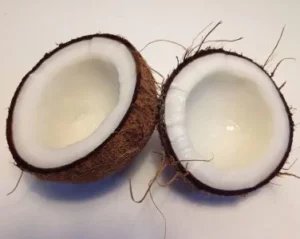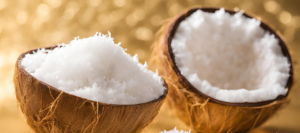Coconut Farming and Environmental Impact: The Green Guardian

Coconut farming has a long-standing reputation as a vital industry in many tropical countries, including India. From the tree’s versatile applications to its nourishing fruit, coconuts are not only a staple for local communities but also a significant contributor to the global economy.
However, as the world becomes more conscious of environmental sustainability, it is important to understand the impact of coconut farming on the environment. In this article, we explore how coconut farming practices can be both beneficial and potentially hazardous to the ecosystem.
The Coconut: Nature’s Wonders
First, let’s appreciate the significance of coconuts in our lives. Coconuts are not just delicious and hydrating; they offer a range of valuable byproducts. From coconut oil to coconut milk, and from coconut shells to coconut fiber, every part of this tropical fruit has its uses. Coconut farming provides economic stability for many communities, particularly in developing countries.
Sustainable Coconut Farming Practices
To ensure the longevity of coconut farming and minimize its environmental impact, sustainable practices are essential. Here are some sustainable agricultural techniques that coconut farmers can adopt:
Organic Farming Methods: Encouraging eco-friendly farming techniques, such as avoiding the use of chemical fertilizers and pesticides, contributes to the health of the soil, surrounding biodiversity, and water sources.
Crop Rotation: Implementing crop rotation methods in coconut farms prevents soil erosion, improves soil fertility, and reduces pest infestations. By alternating coconut cultivation with other crops, such as legumes or grains, farmers maintain a balanced ecosystem.
Composting: Utilizing coconut waste, such as husks and leaves, for composting not only reduces the need for synthetic fertilizers but also promotes soil structure and fertility. Compost acts as a natural slow-release fertilizer, providing the necessary nutrients to coconut trees without causing harm to the environment.
Water Conservation: Coconut farming requires a significant amount of water. Implementing water conservation techniques, such as drip irrigation and mulching, minimizes water usage and prevents water wastage. These practices are especially crucial in regions prone to drought or water scarcity.
Concerns and Environmental Impact
While coconut farming can be sustainable, it is also important to recognize some environmental concerns associated with the industry:
Deforestation: The expansion of coconut farms sometimes involves clearing natural forests, leading to habitat destruction and loss of biodiversity. Promoting responsible land use planning and encouraging reforestation efforts can offset the environmental impact of deforestation.
Chemical Runoff: Improper use of chemicals and fertilizers can lead to water contamination, harming aquatic life and ecosystems. Farmers should be educated about the correct application of agrochemicals and encouraged to adopt organic alternatives.
Monoculture: Relying excessively on coconut farming alone can result in monoculture, where a single crop dominates an entire area. Monoculture can lead to soil nutrient depletion, increased vulnerability to diseases and pests, and reduced biodiversity. Encouraging crop diversification helps mitigate these risks.
The Future of Sustainable Coconut Farming
Efforts are being made globally to promote sustainable coconut farming practices. NGOs, governments, and international organizations are promoting initiatives that focus on environmental protection, fair trade practices, and social responsibility within the coconut industry.
In addition, consumers play a vital role in driving sustainable changes. By supporting certified organic and fair trade coconut products, individuals can contribute to the preservation of both the environment and the livelihoods of small-scale farmers.
External Resources
To learn more about sustainable coconut farming, the following resources offer valuable insights:
Conclusion
Coconut farming is an essential industry that provides numerous benefits but also poses environmental challenges. By adopting sustainable practices, such as organic farming methods, crop rotation, and water conservation, coconut farmers can mitigate their environmental impact.
As consumers, we can support sustainable coconut farming by making informed choices and opting for certified organic and fair trade coconut products. Together, we can ensure the preservation of our planet while enjoying the versatile and nourishing fruit of the coconut tree.
Remember, each coconut product we consume can have a positive impact on both our well-being and the environment, making us all guardians of the green.
“The greatest threat to our planet is the belief that someone else will save it.” – Robert Swan



